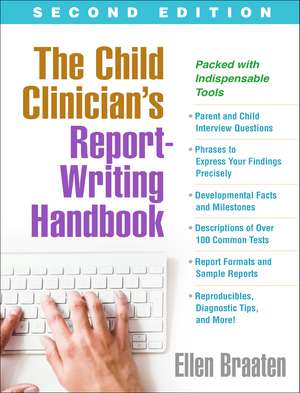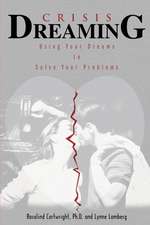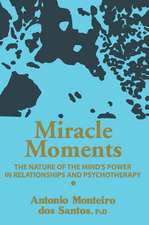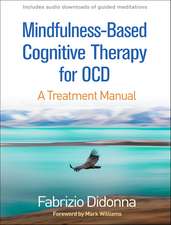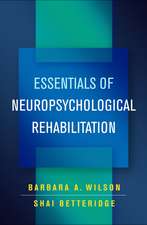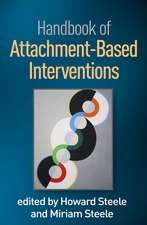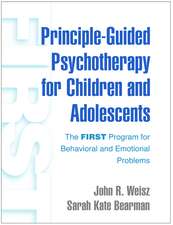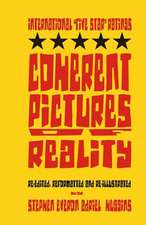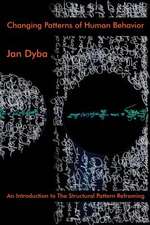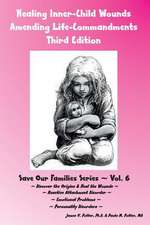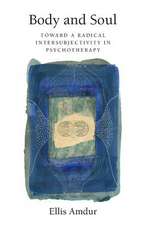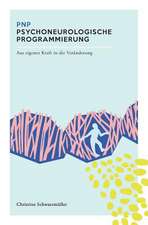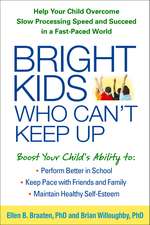The Child Clinician's Report-Writing Handbook, Second Edition: The Clinician's Toolbox
Autor Ellen Braatenen Limba Engleză Paperback – 23 oct 2019
Now revised and updated, this indispensable tool streamlines the process of conducting child and adolescent assessments and producing high-quality reports. In a convenient large-size format, the book is filled with interview questions and reproducible forms for collecting pertinent information from children, parents, and teachers; wording to describe more than 100 commonly used tests; and menus of terms and phrases for each section of a report. Formats and writing tips are provided for diagnostic, personality, and neuropsychological reports; treatment plans; progress notes; and more. Other user-friendly features include lists of medications and abbreviations and recommended print and online resources for professionals and parents. Purchasers get access to a Web page where they can download and print the reproducible materials.
New to This Edition
*Revised throughout for DSM-5 and ICD-10-CM.
*Includes the most current test batteries and rating scales.
*Updated resources for professionals and parents.
*Reproducible materials now available online.
New to This Edition
*Revised throughout for DSM-5 and ICD-10-CM.
*Includes the most current test batteries and rating scales.
*Updated resources for professionals and parents.
*Reproducible materials now available online.
Preț: 342.67 lei
Preț vechi: 360.71 lei
-5% Nou
Puncte Express: 514
Preț estimativ în valută:
65.61€ • 68.32$ • 54.44£
65.61€ • 68.32$ • 54.44£
Carte disponibilă
Livrare economică 24 ianuarie-07 februarie
Livrare express 09-15 ianuarie pentru 45.61 lei
Preluare comenzi: 021 569.72.76
Specificații
ISBN-13: 9781462540693
ISBN-10: 1462540694
Pagini: 384
Dimensiuni: 203 x 267 x 22 mm
Greutate: 0.84 kg
Ediția:2nd edition
Editura: Guilford Publications
Colecția Guilford Press
Seria The Clinician's Toolbox
ISBN-10: 1462540694
Pagini: 384
Dimensiuni: 203 x 267 x 22 mm
Greutate: 0.84 kg
Ediția:2nd edition
Editura: Guilford Publications
Colecția Guilford Press
Seria The Clinician's Toolbox
Public țintă
Professional Practice & DevelopmentCuprins
Introduction
I. Questions for Conducting a Psychological Evaluation of a Child or Adolescent
1. Beginning the Interview
2. Questions for Parents on Signs, Symptoms, and Behavior Patterns
3. Observation Procedures and Questions for Children and Adolescents
4. Questions for Teachers or Other Professionals
5. The Formal Mental Status Exam with Children and Adolescents
6. Ending the Interview
II. Standard Terms and Statements for Wording Psychological Reports
7. Beginning the Report
8. Reasons for Referral
9. History of Current Symptoms
10. Medical and Psychiatric Background Information
11. Developmental and Family History
12. Academic and School History
13. Behavioral Observations
14. Attitude toward Testing
15. Affective Symptoms and Mood/Anxiety Disorders
16. Childhood Behavioral and Cognitive Disorders
17. Home and Family
18. School
19. Social and Work Relationships, Recreational Activities
20. General Guidelines for Presenting Test Results in a Report
21. Tests of Intellectual Functioning
22. Achievement Measures
23. Tests of Language Functioning
24. Memory Tests
25. Tests of Visual–Spatial and Motor Skills
26. Measures of Executive and Neuropsychological Functioning
27. Measures of Emotional and Personality Functioning
28. Behavior Rating Scales and Tests of Adaptive Functioning
29. Diagnostic Statements/Impressions
30. Summary of Findings and Conclusions
31. Recommendations
32. Closing Statements
III. Special Circumstances and Useful Resources
33. Writing for the Schools
34. Treatment Planning
35. Report Formats and Sample Reports
36. Resources for Professionals
37. Resources for Parents
38. Medications
39. Abbreviations in Common Use
40. Useful Forms
I. Questions for Conducting a Psychological Evaluation of a Child or Adolescent
1. Beginning the Interview
2. Questions for Parents on Signs, Symptoms, and Behavior Patterns
3. Observation Procedures and Questions for Children and Adolescents
4. Questions for Teachers or Other Professionals
5. The Formal Mental Status Exam with Children and Adolescents
6. Ending the Interview
II. Standard Terms and Statements for Wording Psychological Reports
7. Beginning the Report
8. Reasons for Referral
9. History of Current Symptoms
10. Medical and Psychiatric Background Information
11. Developmental and Family History
12. Academic and School History
13. Behavioral Observations
14. Attitude toward Testing
15. Affective Symptoms and Mood/Anxiety Disorders
16. Childhood Behavioral and Cognitive Disorders
17. Home and Family
18. School
19. Social and Work Relationships, Recreational Activities
20. General Guidelines for Presenting Test Results in a Report
21. Tests of Intellectual Functioning
22. Achievement Measures
23. Tests of Language Functioning
24. Memory Tests
25. Tests of Visual–Spatial and Motor Skills
26. Measures of Executive and Neuropsychological Functioning
27. Measures of Emotional and Personality Functioning
28. Behavior Rating Scales and Tests of Adaptive Functioning
29. Diagnostic Statements/Impressions
30. Summary of Findings and Conclusions
31. Recommendations
32. Closing Statements
III. Special Circumstances and Useful Resources
33. Writing for the Schools
34. Treatment Planning
35. Report Formats and Sample Reports
36. Resources for Professionals
37. Resources for Parents
38. Medications
39. Abbreviations in Common Use
40. Useful Forms
Notă biografică
Ellen Braaten, PhD, is Director of the Learning and Emotional Assessment Program at Massachusetts General Hospital (MGH), Co-Director of the Clay Center for Young Healthy Minds at MGH, and Associate Professor of Psychology at Harvard Medical School (HMS). She has been affiliated with MGH and HMS since 1998. Dr. Braaten is widely recognized for her expertise in pediatric neuropsychological and psychological assessment, particularly in the areas of assessing learning disabilities and attentional disorders. Her research and numerous publications focus on attention-deficit/hyperactivity disorder, learning disabilities, gender and psychopathology, intelligence, and assessment. She has published numerous books for professionals and parents, including Bright Kids Who Can't Keep Up.
Recenzii
“This book is an extremely valuable tool for writing well-organized and useful psychoeducational or neuropsychological evaluations of children and adolescents. It provides very smart, practical guidance about organizing and adapting evaluations to the specific needs of individual students. Beginning and experienced clinicians alike will find this handbook a rich resource, and it should be used in training future practitioners. I strongly recommend it."--Thomas E. Brown, PhD, private practice, Manhattan Beach, California; Department of Psychiatry and Behavioral Sciences, Keck School of Medicine, University of Southern California
"Understanding what is going on with a child behaviorally, cognitively, and emotionally, and delivering the message to the family, is the first step in effective treatment. Braaten skillfully navigates the critical process of evaluating complex psychological and neuropsychological issues in children and adolescents. This up-to-date second edition not only covers the basics, but also highlights contemporary thinking related to children’s behavioral health. Braaten's pragmatic approach makes this a highly readable resource for myriad mental health and pediatric professionals who work with youth."--Timothy E. Wilens, MD, Chief, Division of Child and Adolescent Psychiatry, Massachusetts General Hospital/Harvard Medical School
"This book carefully guides the reader from start to finish in the report-writing process. Trainees often find composing their first reports to be daunting. Braaten demystifies this task and delves into special topics--for example, considerations when preparing reports for school-based evaluations. I expect this book to be instrumental when used in graduate-level training. Students will find it an invaluable resource to return to repeatedly when transitioning to new clinical environments, such as during externship and internship rotations."--Andres De Los Reyes, PhD, Department of Psychology, University of Maryland, College Park
"Braaten has done it again with this fantastic second edition of her go-to handbook. This edition is updated for DSM-5 and includes recent advances in testing and assessment. The book's accessibility, logical chapter organization, excellent examples, and reproducible forms make it indispensable for any child clinician. Topics include how to begin the initial interview, interact with parents, gather information from teachers, assemble a comprehensive history, conduct testing, interpret the results, and, of course, write the report--this manual has it all!"--Lee A. Rosén, PhD, Department of Psychology, Colorado State University-This handbook is highly organized for easy reference and is structured in the same manner clinicians conduct their evaluations….This comprehensive handbook provides applicable information to any practitioner who conducts evaluations, especially those in a clinical setting. For a more seasoned evaluator, it can serve as a reference to brush up on skills….This handbook would also be useful for someone first starting out their practice due to the high level of detail given to the overall evaluation process. Furthermore, it has many resources that would benefit any clinician such as recommendations for teachers and parents, sample reports, interview templates, and a list of common medications that are used to treat psychiatric conditions in children. Overall, this handbook has a lot to offer either as a reference tool or as a detailed guide on how to write a more comprehensive report.--NASP Communiqué, 1/1/2021ƒƒFor those in training to do psychological evaluations and write professional reports, this book is an invaluable tool....It could serve as a companion text in any graduate psychology training course on assessment in both psychological and educational domains. (on the first edition)--Child and Family Behavior Therapy, 1/18/2007ƒƒChapters on standard terms and statements that can be used in reports are invaluable, especially for early career professionals and graduate students. The excellent chapter on general guidelines for presenting test results in a report gives clinicians language to report results clearly to both professionals and parents….This excellent book contains everything child clinicians need to write up a psychological assessment. This is an invaluable resource for students, early career professionals, and seasoned clinicians. The second edition is needed because of the use of DSM-5 and ICD-10-CM codes, as well as current psychological instruments.--Doody's Review Service, 1/3/2020
"Understanding what is going on with a child behaviorally, cognitively, and emotionally, and delivering the message to the family, is the first step in effective treatment. Braaten skillfully navigates the critical process of evaluating complex psychological and neuropsychological issues in children and adolescents. This up-to-date second edition not only covers the basics, but also highlights contemporary thinking related to children’s behavioral health. Braaten's pragmatic approach makes this a highly readable resource for myriad mental health and pediatric professionals who work with youth."--Timothy E. Wilens, MD, Chief, Division of Child and Adolescent Psychiatry, Massachusetts General Hospital/Harvard Medical School
"This book carefully guides the reader from start to finish in the report-writing process. Trainees often find composing their first reports to be daunting. Braaten demystifies this task and delves into special topics--for example, considerations when preparing reports for school-based evaluations. I expect this book to be instrumental when used in graduate-level training. Students will find it an invaluable resource to return to repeatedly when transitioning to new clinical environments, such as during externship and internship rotations."--Andres De Los Reyes, PhD, Department of Psychology, University of Maryland, College Park
"Braaten has done it again with this fantastic second edition of her go-to handbook. This edition is updated for DSM-5 and includes recent advances in testing and assessment. The book's accessibility, logical chapter organization, excellent examples, and reproducible forms make it indispensable for any child clinician. Topics include how to begin the initial interview, interact with parents, gather information from teachers, assemble a comprehensive history, conduct testing, interpret the results, and, of course, write the report--this manual has it all!"--Lee A. Rosén, PhD, Department of Psychology, Colorado State University-This handbook is highly organized for easy reference and is structured in the same manner clinicians conduct their evaluations….This comprehensive handbook provides applicable information to any practitioner who conducts evaluations, especially those in a clinical setting. For a more seasoned evaluator, it can serve as a reference to brush up on skills….This handbook would also be useful for someone first starting out their practice due to the high level of detail given to the overall evaluation process. Furthermore, it has many resources that would benefit any clinician such as recommendations for teachers and parents, sample reports, interview templates, and a list of common medications that are used to treat psychiatric conditions in children. Overall, this handbook has a lot to offer either as a reference tool or as a detailed guide on how to write a more comprehensive report.--NASP Communiqué, 1/1/2021ƒƒFor those in training to do psychological evaluations and write professional reports, this book is an invaluable tool....It could serve as a companion text in any graduate psychology training course on assessment in both psychological and educational domains. (on the first edition)--Child and Family Behavior Therapy, 1/18/2007ƒƒChapters on standard terms and statements that can be used in reports are invaluable, especially for early career professionals and graduate students. The excellent chapter on general guidelines for presenting test results in a report gives clinicians language to report results clearly to both professionals and parents….This excellent book contains everything child clinicians need to write up a psychological assessment. This is an invaluable resource for students, early career professionals, and seasoned clinicians. The second edition is needed because of the use of DSM-5 and ICD-10-CM codes, as well as current psychological instruments.--Doody's Review Service, 1/3/2020
Descriere
Now revised and updated, this indispensable tool streamlines the process of conducting child and adolescent assessments and producing high-quality reports.
